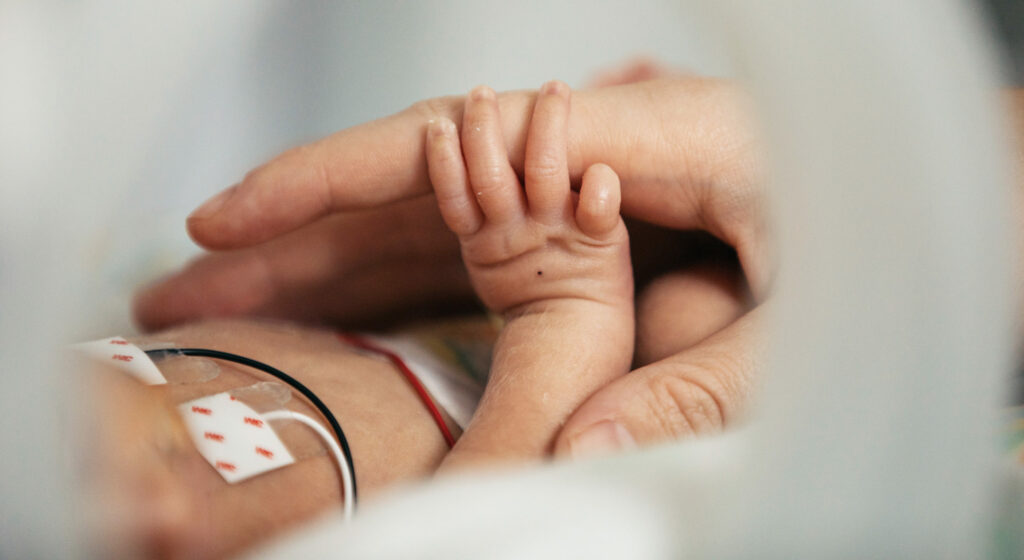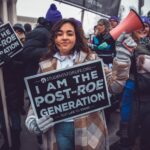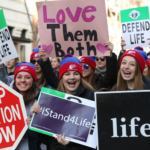Blog Post
A post-Roe America may be radically different
We’ve all been treated to an avalanche of abortion propaganda since the Roe leak—columns peddling the same disinformation that abortion activists have been blathering on about for decades. But there has also been much commentary from pro-lifers about what a post-Roe society might look like, and I’d like to take a look at some of the most interesting analyses.
Matthew Walther has a fascinating take in the New York Times in which he warns (or encourages—depending on your worldview) that the death of Roe may transform America in ways that many in the pro-life movement may not be anticipating. An excerpt:
For years I have noticed a persistent inclination among my fellow opponents of abortion. Perhaps without meaning to do so, they downplay the possibility that the end of legal abortion will entail anything except the eradication of a great evil.
The post-abortion world they seem to envision outwardly resembles the one that we already inhabit, with its familiar social and economic structures intact. They are reluctant to consider that they themselves might have benefited from what those on the other side of the issue would hail as the societywide benefits of decades of legal abortion — allowing more women to engage in wage labor, for example, or all but eliminating the social pressures that once led to shotgun marriages.
This has always seemed to me a great failure of imagination. That failure must now be rectified. With the appearance last week of a draft of what seems to be the forthcoming majority opinion in Dobbs v. Jackson Women’s Health Organization, a decision that would overturn Roe v. Wade, Americans are being invited to consider what it would mean to live in a country in which abortion, though not illegal everywhere, is likely to be banned or heavily restricted in as many as 28 states…
American society as we know it today came into being during the 1970s, in the wake of Roe, amid rising crime rates, stagflation and the dismantling of the Fordist economic consensus in favor of deregulation and the breakup of stable, quasi-nationalized monopolies. It is not possible to conceive of our present way of life — the decline of heavy and textile manufacturing and the rise of the service economy, financialization, the collapse of traditional familial and other social structures, the subsuming of virtually every facet of our existence into digital technologies — in the absence of the estimated 63 million abortions that have been performed in America since 1973..
Exactly how abortion has affected the evolution of American society is a matter of some debate. Consider the economic implications. Twenty years ago, John D. Mueller argued in the pages of Family Policy, a conservative journal, that Roe was “perhaps the single largest American economic event of the past century, more significant than the Great Depression or the Second World War.” By reducing the size of the American population, he argued, abortion threatened both economic growth and innovation. Legal abortion, he said, had led to a reduction in living standards and trillions of dollars in lost net output.
In the years since the publication of Mr. Mueller’s essay, countless economists and social scientists have argued the opposite: that legal abortion is not only compatible with but also necessary for sustained economic growth. Among other things, reduced access to abortion is correlated with lower rates of labor force participation, reduced wages and increased job turnover.
If the actions of major corporations in states such as Texas, which recently banned abortion after about six weeks of pregnancy, are any indication, America’s business establishment agrees. The boards of corporations like Citigroup, with a fiduciary duty to their shareholders, have announced that they will subsidize travel for employees who seek out-of-state abortions.
Opponents of abortion should consider the possibility that these corporations are correct in their apparent assumption that abortion contributes to the maximization of shareholder value. Are we prepared to accept the converse proposition, to invite a reduction in shareholder value by banning abortion?
The scope of the problem is far broader than economics. Research over the years has suggested that an America without abortion would mean more single mothers and more births to teenage mothers, increased strain on Medicaid and other welfare programs, higher crime rates, a less dynamic and flexible work force, an uptick in carbon emissions, lower student test scores and goodness knows what else. If you sincerely believe, as I do, that every abortion means the deliberate killing of an innocent human being, is there some hypothetical threshold for negative growth, carbon dioxide levels or work force participation rates beyond which the protection of that life would be too burdensome?
For me, the answer is no. This is why, even though I find it unlikely that (for example) there is any meaningful causal relationship between access to abortion and academic performance, I believe that those who oppose abortion should not discount the possibility that its proscription will have consequences that some of us would otherwise regret. To insist, as opponents of abortion often have, that the economists John Donohue and Steven Levitt cannot be right about the correlation between Roe and the reduced incidence of crime two decades later strikes me as a tacit concession that if they were right, our position on abortion might have to be altered.
For the same reason, opponents of abortion should commit ourselves to the most generous and humane provisions for mothers and children (paid family leave, generous child benefits, direct income subsidies for stay-at-home mothers, single-payer health care) without being Pollyannaish. No matter what we do, in a post-Roe world many children who would not otherwise have been born will live lives of utter misery, and many of our fellow Americans will be indifferent to their plight. If we wish to dispel the noxious argument that only happy lives are worth saving, we will have to be honest about the limits of social policy and private charity in regulating the turbid ebb and flow of human misery.
Over at Plough Magazine, Erika Bachiochi advocates for a more comprehensive social safety net and harks back to the days of the early feminists to outline the diversity of the American pro-life tradition.
At Religion News, Dr. Charles Camosy explains why impoverished and non-white Americans are uniquely abortion-vulnerable—and also disproportionately pro-life:
This is one of the poorest parts of the country, with very high percentages of Black and brown residents who are structurally coerced into having abortions: They often face poor access to housing, child care and health care. They often lack support for being a mother of multiple children (most women who have abortions already have one or more children) in the workplace. They face horrific levels of intimate partner violence. All of these correlate very closely with abortion.
But those who imagine these populations as allies in favor of abortion rights ought to think again. Indeed, in 2021 Gallup found that economically vulnerable people of color are significantly more anti-abortion than rich white folks are.
For those in households making under $40,000 per year, only 30% want the official position of the Democratic Party: that abortion be legal in all cases. For those in households making over $100,000 per year, those who want unlimited abortion rises to 39%.
Of economically vulnerable people, 42% want abortion legal only in certain cases, while 50% of those with economic privilege do. But wait for this one: 1 in 4 economically vulnerable people want abortion banned altogether, while only 1 in 10 economically privileged people want the same.
In addition, in every circumstance in the same Gallup poll, people of color were more anti-abortion than were non-Hispanic whites.
People demonstrate outside of the U.S. Supreme Court on May 3, 2022, in Washington. A draft opinion suggests the U.S. Supreme Court could be poised to overturn the landmark 1973 Roe v. Wade case that legalized abortion nationwide, according to a Politico report released Monday. (AP Photo/Jose Luis Magana)
The differences were even more stark when asked about whether they identify as pro-life or pro-choice. Economically vulnerable people were +11 percentage points to the pro-life side while economically privileged people were +24 to the pro-choice side. Slightly more people of color identify as pro-life than pro-choice, while the opposite is true for non-Hispanic whites.
These numbers force us to confront a demonic state of affairs: Those who are most likely to oppose abortion are the very folks more likely to be structurally coerced into abortion.
His conclusion is devastating:
Abortion is an “unchoice” for those without power and privilege. They don’t want violence. They want justice.
Increasingly, pro-life thinkers are coming to the same conclusion: a post-Roe America must follow the example of nations like Hungary. I agree.








